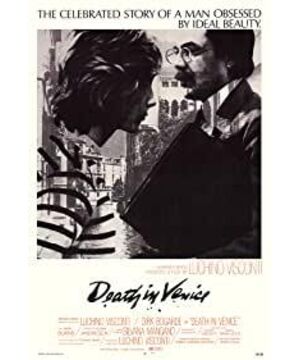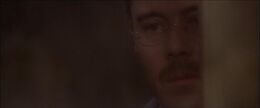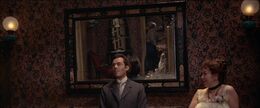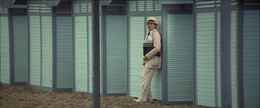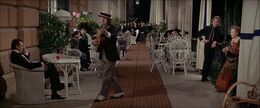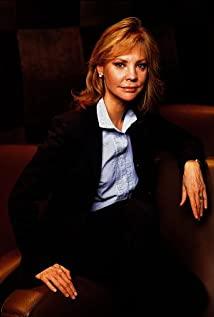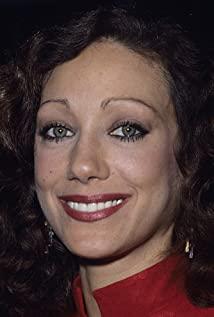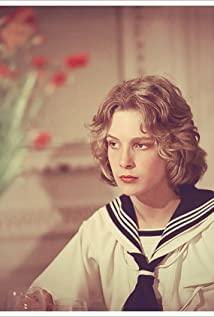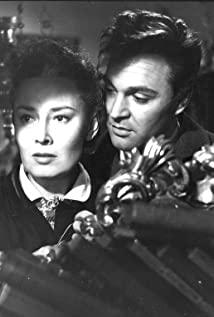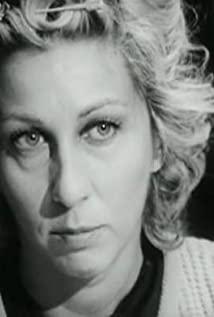All of these, I bought this
. Here, I won't talk about the story of the film. The only thing I want to say is a few personal feelings about the film.
Visconti's film doesn't have too many special perspectives on the camera. It's just slow camera movement and the combination of long and short shots to express it. The beauty of the movie screen.
For example: the camera is facing Aschenbach and looking at Tacchio's face close-up, and then slowly turn the camera to Tacchio's beautiful face. Give the audience a kind of distance beauty- I look at you from a distance, but you don't know how much I love you. Then I
stretched the camera, it turned out that the two were just separated by a red carpet, a ruler away.
It emphasized that although the space distance is short, the secular It makes this distance infinitely far.
When it comes to the above interval, the film repeatedly emphasizes the barrier between Aschenbach and Tacchio. In addition, as mentioned above, there is also an elevator, but the two look at each other because of The crowding of the elevator separates the two of them, etc.
In the movie, the two of them cross each other forever, or follow each other. At the end of the day, Aschenbach stroked Tacchio's hair.
While writing this, I suddenly had this idea: Maybe Tacchio doesn't exist. It's just Aschenbach's instinctive desire . This is a kind of contradiction, but also a kind of conflict.
From the movies interspersed with Aschenbach's past, we can see that he believes in rational beauty and is bound by various rules in the world and cannot release himself. In other words, the beautiful face and same-sex love impacted all his ideas.
Tacchio's smile and turning back broke through Aschenbach's inner line of defense again and again. And Aschenbach went through pain, escaped and left and finally faced his inner love. Interspersed with his past is nothing but the performance of the past and the present self-struggle. This A trial rather than a collision pushes the movie to its climax step by step. And death becomes the inevitable result after 2 passes through the pink rose.
When watching this movie, I always guessed that if Visconti did not do If a film director is a film director, he must be a painter
. It provided a very good service for the scene scheduling of the
movie. At the end of the movie, Aschenbach died on the beach, and the long shot allowed people to see the emptyness and desolation of the beach, and not far from Aschenbach, 2 The play of a child makes people feel the distance between life and death. In the
end, on that beach, there are footprints that intersect with each other, but none of them blend with each other or the footprints in the same direction seem to indicate that they are on the personal trajectory between them. Only that brief intersection.
View more about Death in Venice reviews


